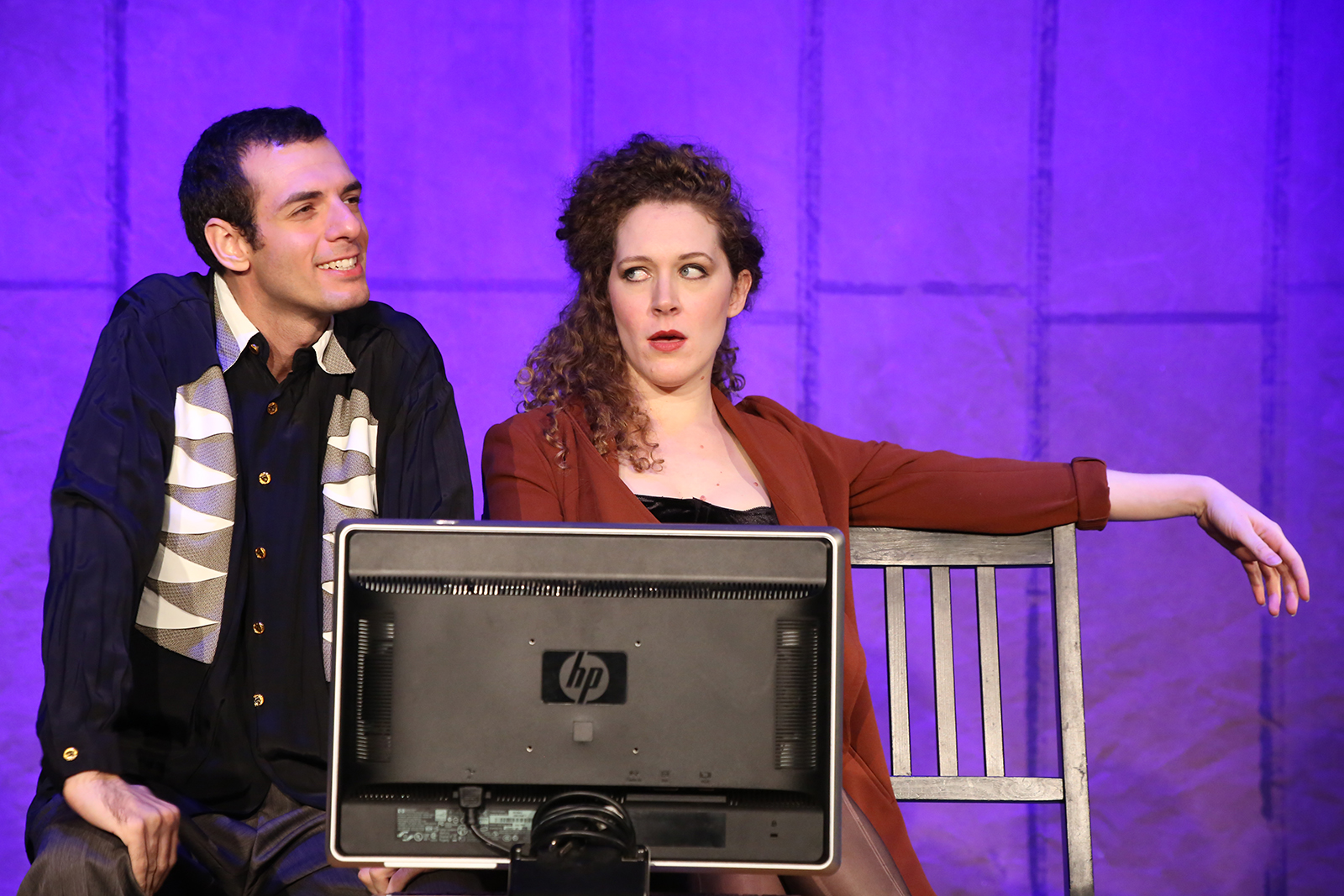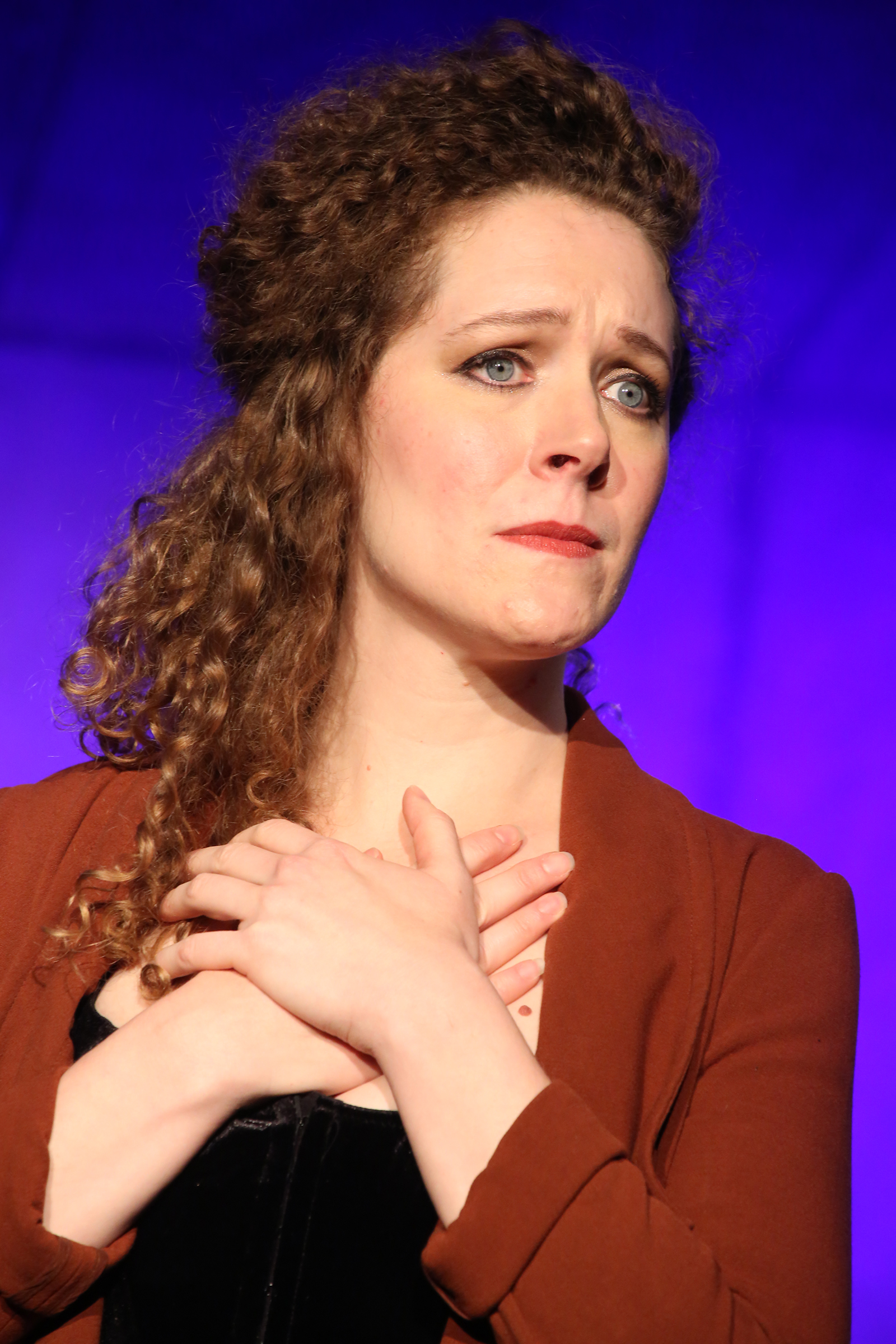by Atar Hadari
directed by James Bosley
A brothel owner commissions the creation of a Torah scroll to win a respectable husband for his daughter. His daughter instead chooses ill repute.
Featuring:
Mary Albert
Matt Antar
Elizabeth A. Bell*
Lauren Capkanis
Bill Christ*
Jonathan Ellers
Richard Grunn*
Sarah Kiefer*
Heather Michelle
Nikole Williams*
Design Team:
Set Design - Samual Vawter
Costume Design - Brenna McShane
Lighting Design - Duane Pagano
Sound Design - David Margolin Lawson
Graphic Design - Dean Heagle
Production Stage Manager - Elizabeth Ramsay Production Photographer - Gerry Goodstein
* appears courtesy of Actors’ Equity Association/AEA approved showcase
Merciful Father: Q&A
Merciful Father playwright Atar Hadari (L) and director James Bosley were asked a few questions about this vital new play.
James, as the Artistic Director of UP, what was it about Merciful Father that made you think this was an UP play?
JB: We get a lot of plays submitted to UP, some good, some not so good. But it’s unusual to get one that truly startles me. Merciful Father did so with its bold disregard of form and genre, while at the same time telling a kickass story about a sinner trying to shield his daughter from shame by turning, somewhat naively, to religion. And though the play contains this misguided religious quest, God, in the end, plays the role of antagonist–dramaturgically speaking. And I thought that thrilling and juicy and perfectly UP-esque.
Atar, you describe the play as “loosely adapted” from God of Vengeance by Sholem Asch. How much did you change for Merciful Father?
AH: Sholem Asch did not have the opportunity to write about phone sex, and having that opportunity a hundred years later, I embraced it! I also thought his original ending of throwing a Torah scroll on the floor would no longer shock a Jewish audience, let alone a non-Jewish one, so I followed the play to what I thought was its logical conclusion.
James, you are first and foremost a playwright. What made you want to direct this play?
JB: Scenes veer from farce to sitcom to melodrama to operatic tragedy. Thinking about it later, I realized that what I saw as flaws were actually an ingenious way of expressing a reality that unfolds for us in a complex, almost comical series of diverse experiences. Suddenly I saw the whole concept before my eyes, and became very jazzed to direct it. But first I had to make sure Atar was on board with my concept, which thankfully he is.
Atar, what is it about this almost 100-year old play that made you want to adapt it for a modern audience?
AH: I was asked to adapt the Sholem Asch play, which I didn’t know. To be perfectly honest, it was a play about a brothel, which was something I knew nothing about. But I was actually living at the time in North Manchester, the biggest ultra-Orthodox Jewish community in Europe, and passed a newsagent window one day where I saw a card advertising for phone sex workers. The notion of a phone sex business in the midst of this very upright neighborhood stayed with me.
James, can you tell us about your concept for the play?
JB: No, I don’t want to spoil the surprise. Well okay, just a peak behind the curtain then. To heighten the play’s theatricality, we are presenting it as though it is a skit in a down-and-out Music Hall. So we are constructing a theater environment that reads “cheesy theater” and the evening will include–AT NO EXTRA CHARGE–pre-play performances to introduce that concept to the audience (the play itself is short anyway, under an hour). But then, as the play progresses… No I shan’t reveal anymore!
Atar, you are UP’s first international playwright. How did you find us all the way from Manchester, England and what made you think we were the right company for your play?
AH: By day I am a mild-mannered bible translator living in a sleepy but picturesque village in England. By night I subscribe to a NYC Playwrights list where one day an add caught my eye, largely because a friend of mine used to live in your neighborhood, in Inwood: “UP is not afraid to be gritty, rambunctious, irreverent. We do not favor camp or sitcom. Looking for plays that relate to and challenge an urban working class audience. Comedy or drama. We like them juicy.” I can’t say after all this time but I suspect it was “we like them juicy” that did it.
















